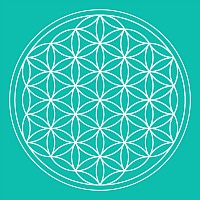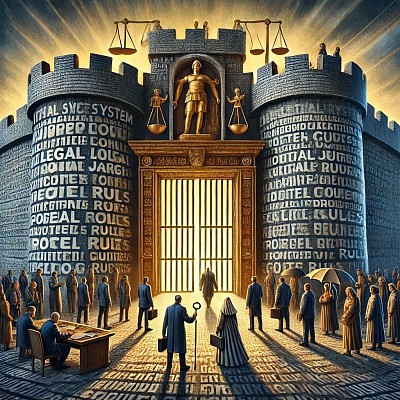The Right to Liberty
Understanding the Consequences of Victimless Crime Laws
At Finding Camelot, we believe in pursuing liberty and that true justice serves the people—not systems of control.
Liberty is the state of being free within society from oppressive restrictions imposed by authority on one’s way of life, behavior, or political views.
The criminalization of victimless activities, such as drug possession, consensual sex work, or nonviolent protests, perpetuates a cycle of oppression that disproportionately impacts marginalized communities, and severely impacts an individual's right to liberty. These laws are not about protecting society; they’re about maintaining power structures that thrive on punishment over prevention and control over compassion.
Our Vision for Change
Our justice system was never designed to solve societal challenges like addiction, poverty, or mental health crises. Instead, it has historically punished those struggling with these issues, treating their circumstances as crimes rather than symptoms of systemic failure. Finding Camelot stands firmly against this approach. We believe in dismantling laws that criminalize behaviors without victims, focusing instead on prevention, education, and community-driven solutions.
- Decriminalization & Support: We advocate for the decriminalization of victimless activities and the redirection of resources toward rehabilitation, harm reduction, and support networks.
- Restorative Justice: Justice should focus on repairing harm when harm exists—not on punishing behaviors that don’t threaten public safety. We champion policies that address root causes rather than symptoms.
- Breaking the Cycle: The criminalization of victimless activities feeds the prison-industrial complex and perpetuates economic inequality. Our mission is to replace this system with one that uplifts individuals and empowers communities to thrive.
We are committed to building a society where the justice system works for the people it serves. This means advocating for reforms that prioritize healing over punishment and offering tools for communities to organize, educate, and protest the laws that oppress them.
The true measure of just society is not how many people we incarcerate but how effectively we empower people to live lives of dignity, purpose, and freedom.
Gatekeeping Justice
The justice system, intended to serve us all, has become a fortress guarded by the legal elite. Through procedural gatekeeping and the segregation of legal knowledge, this system ensures that power remains concentrated in the hands of a select few, leaving the working class and marginalized communities locked out. By controlling who can practice law and the extent of access to technical procedural knowledge, the legal system creates near insurmountable barriers for those outside the profession; all while claiming to recognize the constitutional right to self-representation.
Exclusive Licensing: Only those who pass rigorous, costly, and time-intensive exams can easily navigate through court proceedings and requirements, regardless of practical knowledge or experience. This creates a monopoly on representation.
Opaque Court Procedures: Legal systems are laden with procedural rules that are incomprehensible to the average person. Missing a filing deadline or failing to use the right format can doom a case, regardless of its merits.
Self-Representation Challenges: While self-representation is technically allowed, the system is designed to punish those who try. These litigants face bias from judges and opposing counsel, and the procedural complexity makes it nearly impossible to succeed without formal training.
Segregation of Legal Knowledge: Legal knowledge and technical information is hidden behind walls of jargon, paywalls, and privilege, ensuring that only those with money or formal education can access it.
- Contracts, statutes, and court rulings are written in dense, archaic language that alienates non-experts.
- Legal databases like Westlaw and LexisNexis, essential tools for research, are prohibitively expensive, making critical information inaccessible to the public.
- Legal education is out of reach for most due to its cost, perpetuating a cycle where only the privileged have the tools to navigate the system.
The Impact on the Working Class
Dependence on Lawyers: The monopoly forces individuals to hire expensive attorneys for even the simplest legal matters, putting justice out of reach for many.
Barriers to Self-Advocacy: The segregation of knowledge prevents individuals from understanding or asserting their own rights.
Exacerbation of Inequality: Wealthy individuals and corporations can afford expert legal teams, while the working class is left defenseless.
Our Mission
At Finding Camelot, we reject the idea that justice should belong to an elite few. The monopoly on legal knowledge and procedural information is antithetical to a fair and equitable society. To dismantle these barriers, we advocate for:
- Open Access to Legal Knowledge: Legal resources and databases must be freely available to the public, empowering individuals to understand and assert their rights.
- Simplified Legal Processes: Streamlining procedures and reducing unnecessary complexity to make the system navigable for all.
- Support for Self-Represented Litigants: Providing tools, education, and advocacy for those who choose to represent themselves.
Justice should never be a privilege reserved for those with the right credentials or deep pockets. At Finding Camelot, we are committed to tearing down the walls of the legal monopoly, ensuring that every individual has access to understand the system that is meant to serve them.



